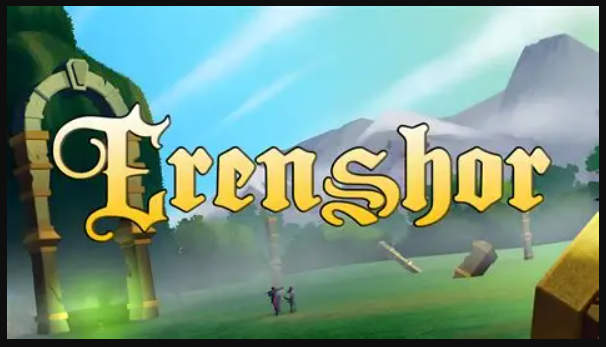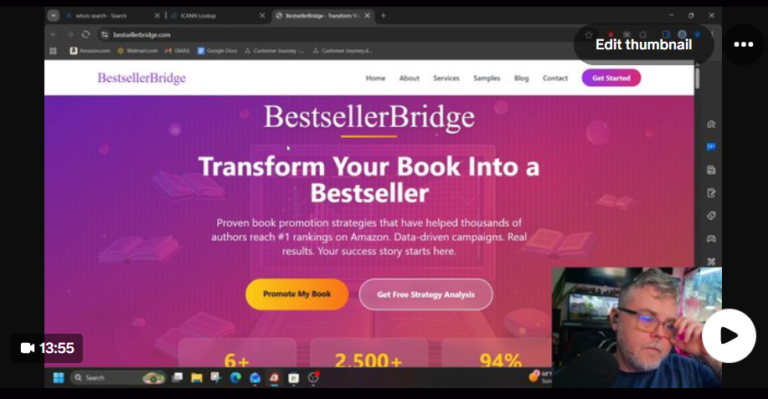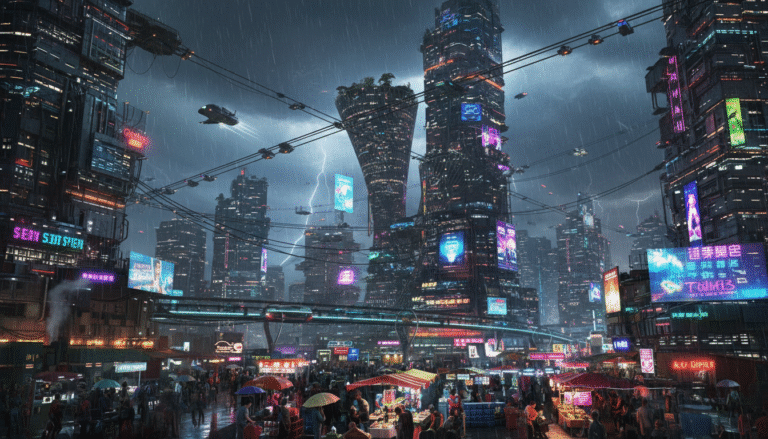As a society, we’ve made a fairly recent discovery when it comes to education. People benefit far more from being taught how to learn than they do from being fed information.
Without going into a tirade about how the U.S. education system appears to be stuck in the Industrial Revolution, I want to discuss how this principle applies to writers.
We certainly live in the right time to be an indie author. The nexus between the democratization of creative fields and the open sharing of information is right under our feet. You can watch hundreds of YouTube videos about the craft of writing, work with a proofreader, submit manuscripts to agents, publish a paperback novel, and take a writing course all without leaving your desk.
All of these are important, because we can learn just as much from our own experiences as we can from listening to other writers’ stories. Things like publishing and querying are not the “end game” as much as they’re additional steps in the lifelong learning process.
That said, even with the glut of online resources and education tools available, the topic of effective learning is often overlooked. Efficiency is more important than ever, as the sheer amount of educational content on offer could easily eat up 90% of your time, leaving little room for the practical application of skills.
Get On With It
Which leads me to the first efficiency point in this guide. “Get on with it,” or to be more specific, you must make sure you’re writing. Just as one can’t learn how to play the piano by reading a biography of Bach or listening to Mozart, you have to practice to actually get any better.
Theory is important. Grammar matters, as does knowing the ins and outs of plotting and character development. But regardless of how much you learn about the craft, your novel will never write itself.
The most efficient learning method I’ve used is simple: write a lot, and get a lot of feedback. Repeat.
Get Editors, Beta Readers, and Proofreaders
Notice how “get feedback” is part of my super simple learning cycle. Just writing isn’t enough to truly learn, although it’s a huge step in the right direction. Without feedback, your writing skills may never improve at the rate they would with outside input.
You’ll probably get faster, and you’re likely to see elements of your own style emerge over time, but there’s a solid chance you’ll be making mistakes along the way that an editor or proofreader would have pointed out.
Have thick skin and an open mind here. Especially if you have to get your feedback from friends rather than professionals. You’re more likely to shrug off the input of someone you’re not paying, but resist that urge. Think about every criticism that comes your way.
And if at all possible, hire out some proofreading and development editing. There are tons of great people on Fiverr who are willing to critique short pieces of your work — and their services are cheap.
Honestly, I believe spending $20 to have your first chapter critiqued by an outside editor is one of the best things you can do to improve as a writer. If possible, gather up all of your first chapters and have each one critiqued. The results will be golden.
Study Other Creative Fields
I’ve spent more time learning about the film and game industries than I have studying publishing, and doing so played no small part in both writing my books and getting them under contract for adaptations.
The same goes for my study of the craft itself. I’ve read more books on screenwriting than on novel writing, and I’ve read precisely zero books on outlining novels, but several on creating video game development docs.
My reasoning is simple here. I don’t want to be like everyone else who is trying to do the same thing I am. In highly-competitive fields, being good usually isn’t enough — you also have to be uniquely valuable. You have to bring something that no one else is bringing, and when you think about it, that something probably isn’t going to be a good novel.
Everyone who wants to be an indie author is showing up with a good novel, or they will if they’re given enough time. (It took me over 20 years, but I finally showed up with a good one.)
And I’ll tell you this: Now that I’ve been working with two outside media companies for adaptations of Into the BeanStalk and Into the Looking Glass, I’ve learned that they love working with writers who are not siloed divas.
First of all, my knowledge of business, media production, and marketing is hugely appreciated because everything doesn’t need to be explained to me. Rather than being two parties playing tug-of-war with an IP, we meshed as a team fairly quickly.
Secondly, because I understand how different creative fields work, I also know where I should step aside and let someone else make decisions. When you begin working with others, whether that be publishers, media companies, or just your editor, they need you to step back and listen. Sometimes, you might need to loosen the stranglehold on your IP so they can do their jobs.
That can be hard for a writer to do — but it’s a lot easier when you understand why they make the decisions they do.
Read and Watch Outside the Genre
I talk about this one a lot, so I’ll keep it short. If you’re writing sci-fi, don’t read sci-fi. If you’re writing fantasy, don’t read fantasy.
Other written works can be inspiration, but if they’re the same genre that you’re writing in, they’re only going to inspire you to write the same book that you’ve just read.
The proof of my adamant position in this is super easy to illustrate now. Notice anything about all the Star Wars and Marvel properties coming out lately? Very few of them are written as superhero or generic sci-fi at this point.
Instead, the writers are taking cues from outside genres and blending them with their worldbuilding and characters. And look at the D&D movie that came out not that long ago. It was incredibly good…but it was actually a heist movie, not a generic fantasy story. It might as well have been Ocean’s Eleven. (Ocean’s Elven? Heh.)
Unfortunately, studios are doing it so much now — and often so poorly — that it kind of looks like a bad idea. There are a lot of bad Star Wars properties out there. And I stopped watching Marvel stuff years ago. The last time I caved was when I was talked into watching Madame Web, and it was an abysmal train wreck of a movie.
Anyway, if you’re going to take time to read, read outside your genre.
Critique the Work of Others
Sometimes the best way to learn is through others’ mistakes. (Yeah, that sounds harsh, but I come from a position of knowing that we all make mistakes.)
I never got a lot from traditional writers’ groups because of the “read out loud” format and the time constraints, but I have learned a ton from qtCritique.
It’s free. Just sign up and earn points by critiquing the work of other authors, then use your points to submit your own work for feedback.
And don’t just phone in your critiques or you won’t learn anything. It’s okay (and appreciated) when you submit copy editing feedback, but don’t stop at fixing commas. Take your time and really analyze the style, pacing, tone, and prose. That’s where you’re going to start falling into realizations about your own writing.
Absorb Quality Lectures on Writing
Like I said at the beginning of this article, you could watch YouTube videos about writing for hundreds of hours. You shouldn’t though — especially if these videos rob you of time you could spend actually writing.
About once every two weeks I throw together a list of videos about the writing craft and go through them. For the most part, I haven’t seen much in the way of innovation coming from them, so I tend to skip through relatively quickly.
What I will recommend is Brandon Sanderson’s BYU lectures on writing science fiction and fantasy. I’ve watched each of those several times over, and pound for pound, they’re the most informative and useful videos I’ve seen.
Don’t Neglect Education and Ongoing Learning
Most of my ideas come from studying. As you might already know, I spend a lot more time reading about science than I do reading fiction. If someone were to ask me flat out which is more important for a sci-fi author to read, I would definitely say skip the sci-fi novels and start reading tech and science articles.
If I were still writing fantasy, I would still be studying up on medieval warfare, herbal medicine, and castles like I used to.
When I started writing about ghost hunters, I spent hours reading about paranormal research.
Typically, if I’m going to enter a new genre, I read one or two popular books from it, absorb what I think I need to learn, and then start studying what the genre is about. That’s where fresh ideas come from, and I’ve always felt that diving into existing works is just an invitation to copy other writers’ stories.
The natural extension of this is formal education. If you know a lot about a subject, you will be poised to write in depth about it. A biologist could write a killer eco-horror. A physics student could write a great sci-fi story.
You don’t have to be any of these things on paper to write in their respective genres, but knowledge will only help you succeed at crafting a quality novel. With that in mind, don’t neglect the power of following a different passion when it comes to your education.
What I mean is that you shouldn’t feel like you need to take English lit courses to be a writer.
If you’re also passionate about history, pursue that. If you love science like I do, follow that thread. Take a few courses. Watch some online lectures. Change your major. Whatever the case may be.



